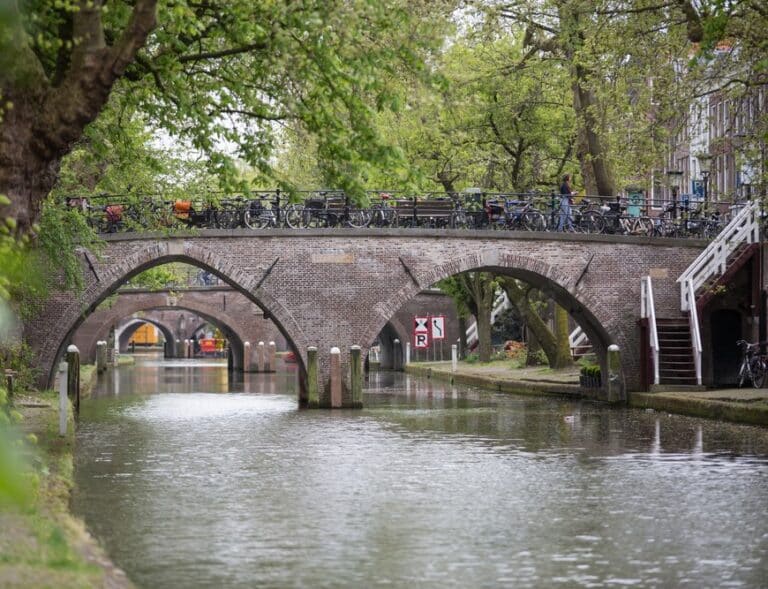Czech Student Life as An American Student
In this post, we hear from Claire, an American student in Europe, who talks about Czech student life (during the pandemic) at one of my favorite schools in Prague! Get this! International student tuition for her program is just under $500 per year! For more on why European universities are so much more affordable, check out the podcast episode I did with an American professor at this same university. – Jenn
My name is Claire, and I am studying Environmental Engineering at Czech University of Life Sciences in Prague, Czech Republic. I am currently in my second year having experience with both COVID and non COVID times.
FREE INSIDER’S GUIDE

Top 5 English-Taught Colleges in Europe
Kickstart you education abroad with a powerful degree taught entirely in English, all without taking on any student loans!
Academic Schedule
School days at public universities in the Czech Republic are generally Monday-Thursday with Fridays off or left for extra classes. I have only had Friday classes once, when taking the mandatory sports class during my first year. Classes take place between 8:45am and 6:00pm and are and hour and half long. Usually, each class meets twice a week, once for our lectures and once for our seminars. During my two years, I’ve had five to eight classes a semester, but usually a couple of the classes aren’t work/study intensive. My current schedule of classes (2nd year, 2nd semester) is:
- Tuesday: classes from 8:45-5:15
- Wednesday: classes from 8:45-10:15
- Thursday: classes from 12:15-3:30
Usually one day a week has a full day of classes which is extremely exhausting, but because of the extended weekend days, on school days, I try to keep long study hours to a minimum and find that it is very helpful for my stress. Typically, after classes are done, I will work out, relax, and maybe get together with my friends depending when classes end. COVID has definitely affected my school schedule, as it has everyone, especially studying a STEM subject and having all lab activity closed. However, professors have tried their best to make the classes work as much as possible.
Social Schedule
On easier days in our schedules my friends and I may go out for lunch or do something after classes, but we try to get together at least once a week outside of school to just hang out, go out to eat, or enjoy nights out. Prague is amazing and has a lot of parks and places around the river that people can hang out, and outdoor festivals/events where during warmer months a lot of time is spent outside.
It’s pretty easy to find different types of foods although Asian (specifically Vietnamese), American, and Czech are most common cuisine, and we have never run into any issues with dietary restrictions because Prague is very vegan/vegetarian friendly. I live in an apartment with roommates which has led to an easier time during COVID lockdowns. One of my roommates and I cook dinner once a week and study together (even though we study different subjects), we started working out together, and just trying to get out of the house.
In terns of Czech student life, I have found that I tend to have more free time than my friends who go to university in the US because of how my school and exam schedule is made. Even though I have 5-8 subjects a week, I have three to four “free days”, so my life isn’t so cramped. Since exams grades are the final grades of classes, usually we don’t get much in the way of homework or test/quizzes which also helps with keeping free time. Compared to my friends in the US, the class difficulty is relatively the same, but can feel harder because I have to self-study more than they do. Overall, I find that even with more classes, even at the same level as my US friends, I tend to have more time to study and socialize due to less weekly work.
— Claire








